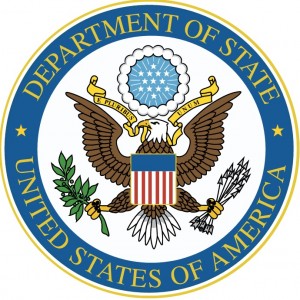 This past week, the US Department of State announced the creation of a new office that “will focus on engagement with faith-based organizations and religious institutions around the world to strengthen US development and diplomacy and advance America’s interests and values.” Citing widespread religious persecution and violence overseas, proponents of the new office of “religious engagement” hope to further institutionalize an official US commitment to globalize religious freedom, marginalize extremism, and promote interfaith dialogue and religious tolerance. There is great excitement in some quarters about the prospects for new partnerships among the US government, for the increasingly vast array of sub-contractors that work on its behalf, and for the various faith-based religious and civil society actors and institutions abroad. Yet this initiative also raises concerns regarding the intersection of religious freedom, religious establishment, and foreign policy.
This past week, the US Department of State announced the creation of a new office that “will focus on engagement with faith-based organizations and religious institutions around the world to strengthen US development and diplomacy and advance America’s interests and values.” Citing widespread religious persecution and violence overseas, proponents of the new office of “religious engagement” hope to further institutionalize an official US commitment to globalize religious freedom, marginalize extremism, and promote interfaith dialogue and religious tolerance. There is great excitement in some quarters about the prospects for new partnerships among the US government, for the increasingly vast array of sub-contractors that work on its behalf, and for the various faith-based religious and civil society actors and institutions abroad. Yet this initiative also raises concerns regarding the intersection of religious freedom, religious establishment, and foreign policy.
What are the prospects for the new office, and what are the potential implications of its efforts for the politics of religious diversity, both locally and transnationally? What assumptions about “religion” underlie these efforts, and what are the implications for civil society, including organizations and associations that do not self-identify as religious?
Our respondents are:
Ahmed al-Rahim, Assistant Professor of Religious Studies, University of Virginia
Helge Årsheim, Ph.D. Candidate in Theology, University of Oslo
Pasquale Annicchino, Research Fellow, European University Institute
Margot Badran, Senior Scholar, Woodrow Wilson International Center for Scholars, and Senior Fellow, Prince Alwaleed bin Talal Center for Muslim-Christian Understanding, Georgetown University
Benjamin L. Berger, Associate Professor, Osgoode Hall Law School, York University
Anver Emon, Professor of Law, Faculty of Law, University of Toronto
Elena Fiddian-Qasmiyeh, Departmental Lecturer in Forced Migration, Refugee Studies Centre, University of Oxford
Amy Frykholm, Associate Editor, The Christian Century
Maia Hallward, Associate Professor of Middle East Politics, Kennesaw State University
Elizabeth Shakman Hurd, Associate Professor of Political Science, Northwestern University
Peter Mandaville, Associate Professor of Government and Politics and Director of Ali Vural Ak Center for Global Islamic Studies, George Mason University
Nadia Marzouki, Research Fellow, European University Institute
Melani McAlister, Associate Professor of American Studies, International Affairs, and Media and Public Affairs, George Washington University
Sara Silvestri, Senior Lecturer in International Politics, City University London
Winnifred Fallers Sullivan, Professor and Department Chair of Religious Studies, Indiana University
Mara Willard, Lecturer, Harvard Divinity School in Religion, Ethics, and Politics
Erin K. Wilson, Director of Centre for Religion, Conflict and the Public Domain, University of Groningen
______
Ahmed al-Rahim, Assistant Professor of Religious Studies, University of Virginia
Clearly an important goal of establishing an office of “religious engagement” at the US Department of State is to promote the very American notion of freedom of religion or the principle guaranteeing an individual’s legal right to practice his or her chosen faith without the state establishing any one of them. While promoting religious freedom may be paramount today, especially in the post-“Arab Spring” Middle East where theology, religious law, and politics are often at an intersection, the devil will be in the details of how State Department officials engage with religio-political actors in (to take an example on which my own work focuses) countries where Islam is declared to be the official state creed. There will, of course, be no cookie-cutter method of how to engage with proponents of political Islam—including members of the Muslim Brotherhood, the Salafists, and more generally those politically inspired by Islam, however they define it—in places like Egypt, Tunisia, Syria, Bahrain, Turkey, Iraq, and Iran, where political and politicized interpretations of religion have been for decades unfolding dynamically. State Department engagement with these actors does not necessarily require diplomats to be theologians, nor simply to be open to the religious and political views (often indistinguishable) of others; but, if they are to be effective, then training in the history of Islamic theology, law, and political theory and practice, particularly as they have developed in the last century, with an eye to operationalizing them in the context of foreign policy and diplomacy will be necessary. Furthermore, United States officials working in the office of “religious engagement” will have to navigate American religious history to see how we have arrived at our own “sacred” principles and texts, namely, the Establishment and Free Exercise Clauses, which guarantee our own religious freedom, to consider their applicability in societies that do not necessarily share our own history of religious experience.
______
 Helge Årsheim, Ph.D. Candidate in Theology, University of Oslo
Helge Årsheim, Ph.D. Candidate in Theology, University of Oslo
The plan to create a new office for religious engagement within the US Department of State comes at a time when religion is considered to become increasingly important, both in domestic and international politics, after decades, if not centuries, in “exile.” International and domestic conflicts, debates over immigration policies and integration seem increasingly to be interpreted in religious terms, strengthening existing religious divides and adding new tensions along the way.
Creating a dedicated office for “engaging” religion seems, in many ways, to be the logical next step for the US Department of State, following more than a decade of promoting what the United States considers to be religious freedom overseas, following the adoption of the 1998 International Religious Freedom Act (IRFA). After supporting religious actors found to be worthy of protection, the time has now come to engage these actors in order to achieve US foreign policy goals.
Like the promotion of religious freedom, the pursuit of religious engagement is problematic for a number of reasons. First, it requires a working definition of “religion” that is wide enough to have global application and narrow enough to make the engagement transparent and concrete. No such definition seems forthcoming. Second, promoting religious engagement risks overestimating the role of religion in international and domestic politics. Religion, religiosity, and religious institutions, however they are defined, play very different roles in states across the world, acting variously as culprits, victims, and accessories to human rights violations, and challenging the feasibility of religion-specific foreign policy initiatives. Third, and most importantly, the activities of such an office could marginalize “secular” actors, both domestically and internationally. This could be particularly detrimental to international cooperation in relief and development work, where several large-scale actors are non-religious.
______
 Pasquale Annicchino, Research Fellow, European University Institute
Pasquale Annicchino, Research Fellow, European University Institute
When states advance freedom of religion or belief (FoRB) through foreign policy what exactly do they aim at protecting and promoting? When states “engage” religion through foreign policy what, and who, exactly are they engaging? These questions might seem tautological, but they are central to both academic and policy debates today. It is not only the U.S.—though it has served as a model in many instances. The European Union, Canada, Italy, and other states are all considering, and some are already implementing, specific policies aimed at fostering the protection and promotion of FoRB—and other forms of religious engagement—in their foreign policies.
These actions and the interests that they reflect raise important questions. In some sense, as Lorenzo Zucca has argued: “The most obvious problem is that action is guided not by an international-universal understanding of the Human Rights to Freedom of Religion, but rather by a very domestic one.” This may not be peculiar to freedom of religion or belief, of course. More importantly, as Thomas Farr has recognized, in the case of the U.S.: “Notwithstanding the hard, creative work of the State Department’s Office of International Religious Freedom, it would be difficult to name a single country in the world over the past fifteen years where American religious freedom policy has helped to reduce religious persecution or to increase religious freedom in any substantial or sustained way.” If this is the case—and coming from one of the most vocal advocates for U.S. religious freedom advocacy—then what exactly is this global trend to protect religious freedom and engage religion about? What exactly is being protected, and engaged, by whom, and with what consequences? While there is no shortage of immediate action in this policy domain, we really don’t know what the long run consequences of these initiatives will be. And it remains to be seen how our conception of the right itself, as well as what it means to protect it through law, will change with time.
______
 Margot Badran, Senior Scholar, Woodrow Wilson International Center for Scholars, and Senior Fellow, Prince Alwaleed bin Talal Center for Muslim-Christian Understanding, Georgetown University
Margot Badran, Senior Scholar, Woodrow Wilson International Center for Scholars, and Senior Fellow, Prince Alwaleed bin Talal Center for Muslim-Christian Understanding, Georgetown University
On July 3 General Mohammad al-Sisi made a televised announcement that the Egyptian President Morsi was deposed and an interim president would be installed. The General was flanked by the Shaikh al-Azhar, the Coptic Pope, an array of military men and civilian political figures, a representative of the Tamarod youth that spearheaded the anti-Morsi petition campaign, and a sole woman, adviser on women’s affairs (barely discernible in the back). This tableau vivant flashes before my eyes as I ponder the new US office of religious engagement. What is the purpose of religious engagement? To support human rights, social justice, societal harmony, and freedom–of religion? Of individual choice? Why not just continue to engage on (secular) national terrains, through governmental and nongovernmental entities, including religiously defined groups and individuals as some among many, rather than highlighting “religious engagement”? What would religious engagement involve, how would it be conducted, and with whom? Whose religion?
Let’s look at Islam, the majority religion in Egypt. Is it the Islam of the scholarly establishment around al-Azhar? Is it Sunni Islam? What about Shi’i Islam in Egypt? Is it political Islam and its various expressions: the Muslim Brothers, the Salafis, etc.? Is it the Islam of the people? Who represents religion? Who are the actors and who are the leaders? How do women as a category and as individuals, as religious actors and religious leaders, figure within religious scenarios (Muslim and otherwise) so heavily tinted by patriarchal shadows and so most often spoken for in the name of religious fiat—and who gets to say? I think about this in an immediate sense as I find myself in Cairo writing at a moment of peaking insecurity three weeks after the June 30 uprisings of millions of women and men calling for the end of the political hegemony of the Muslim Brotherhood. As Egypt battles for more active pluralism and inclusivity within the all-embracing circumference of the nation—as a nation of equals who are different along many axes, including religion—at a moment when the country has suffered religious (societal) fracture and religious (political) manipulation, is it not troubling to see emissaries from a US office of religious engagement entering such territory?
______
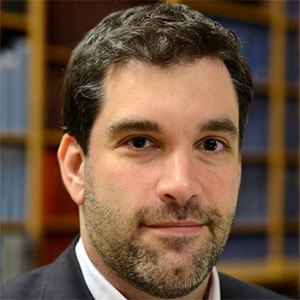 Benjamin L. Berger, Associate Professor, Osgoode Hall Law School, York University
Benjamin L. Berger, Associate Professor, Osgoode Hall Law School, York University
One commonly expressed concern about the apparent plan to establish an office of religious engagement centres on the potential imprint of the US model of non-establishment. Will such an office do its work by reading issues of religious freedom against a parochial and comparatively idiosyncratic US standard of institutional separationism, effectively exporting a model ill-fitted to the complex variety of political and historical configurations of law, religion, and politics found around the world?
There is, however, another and arguably more troubling separationism communicated in this kind of initiative, one that concerns the implicit concept of religion that underlies such efforts. A dedicated office of religious engagement implies the analytic divisibility of religion, as a category of social concern, from the web of factors that conventionally preoccupy international justice and global affairs. It contributes to the idea that issues of religious persecution, violence, and “extremism” – or in the positive register, religious tolerance and peace – can be engaged with apart from economic, social, gender, and historical in/justice. As Wendy Brown has pointed out, the conceit of law’s autonomy obscures the nature of toleration. This conceit of the analytic autonomy of religion similarly forestalls a sophisticated analysis of the very issues that the office seeks to address. Rather than a part of the social world with which all political intervention – and all policy analysis – must wrestle, the framing of this initiative presents religion as “special” or distinctive category for analysis. One is invited to imagine that “religious engagement” is possible absent serious analysis of, for example, economic conditions or gender politics. In so doing, it performs at the analytical level the kind of separation that is structurally insisted upon in the United States. This might contribute to its political attractiveness within the United States, but it effaces the unruly realities of religion’s place in issues of transnational justice.
______
 Anver Emon, Professor of Law, Faculty of Law, University of Toronto
Anver Emon, Professor of Law, Faculty of Law, University of Toronto
The prospects of a State Department office of religious engagement raise various points of interest and concern, especially for someone such as myself who specializes in Islamic legal history. On the one hand, such an office is not unusual or unprecedented. Countries around the world have devoted public funds to managing, regulating, and engaging religious communities. Indonesia has its Ministry of Religious Affairs. Saudi Arabia has its Council of Islamic Fatwa and Research. Singapore, by virtue of special legislation (The Administration of Muslim Law Act), has specific institutions to support its domestic Muslim Malay citizens – a feature that reflects a domestic compromise that made possible Singapore’s secession from Malaysia earlier in the 20th century. So in this sense, an Office of Religious Engagement is hardly novel. On the other hand, putting such an office in the State Department suggests it will have less to do with engaging domestic Muslim communities, and instead more to do with utilizing religion and religious discourse as part of its international diplomatic efforts. Instrumentalizing religion in this fashion certainly recognizes the reality of religious groups as global political actors, and the need to better understand their religion as motivating international actors. But it begs important questions about what it means to “understand” religion, to what end, and at what cost to the very notion of “religion” or to a given religious tradition. Religious traditions, such as the Islamic tradition, are highly pluralist. There is no single Islam, no single way of being Muslim. Furthermore, there are a multitude of approaches to the study of Islam. My own approach tends to emphasize the literary tradition of Islamic intellectual history. But an ethnographer will approach Islam quite differently, interviewing believers themselves through fieldwork and interviews. So not only are there multiple ways to be Muslim, there are multiple ways to study Islam. This radical pluralism creates a context of ambiguity that does not necessarily support the imperatives of governance. Effective governance all too often requires decision, judgment, and implementation. But decision, judgment, and implementation become quite difficult in a context of ambiguity. Consequently, an office of religious engagement raises concerns about whether and to what extent the imperatives of governance will require undue simplification of otherwise complex religious traditions. It raises concerns about how informed such engagement can be, and the extent to which the imperatives of governance can tolerate the reality of ambiguity that characterizes complex religious traditions and communities.
______
 Elena Fiddian-Qasmiyeh, Departmental Lecturer in Forced Migration, Refugee Studies Centre, University of Oxford
Elena Fiddian-Qasmiyeh, Departmental Lecturer in Forced Migration, Refugee Studies Centre, University of Oxford
The Department of State’s proposed establishment of an office of religious engagement arguably lays the foundations to further institutionalize existing Department of State political priorities by constituting new avenues and arenas for interventions under what we can refer to as a “religionized” model of good governance. Such a scheme raises a number of critical questions, including, firstly, whether such an initiative offers a shift in discourse, policy or practice, or merely offers a consolidated bureaucratic platform from which to continue pursuing long-standing foreign policy aims, as opposed to “humanitarian” concerns per se (although, of course, humanitarianism is itself inherently political). The parallels with existing foreign policy frameworks such as the Lautenberg Amendment (which prioritizes the provision of assistance to religious minorities seeking asylum from Iran or from the former Soviet Union) and the Office of International Religious Freedom (which the US Department of State notes “has the mission of promoting religious freedom as a core objective of U.S. foreign policy”) are numerous. While such a continuation may appear to be an extension of what the United States already considers to be its “good offices” towards Others, this consolidation risks further accentuating, rather than mitigating, tensions and mistrust between different actors on diverse levels.
A related concern is how “religion” is to be conceptualized and what place is accorded to religion in discourse and practice, by different actors on diverse stages. At the outset, it is worth noting the changing position of religious identity, belief, and practice both in models of good governance (itself an intrinsic component of Western foreign policy) and in analyses of short, medium, and long-term responses to conflict and peace situations alike. Earlier conceptualizations of good governance often prioritized secular approaches as the strongest means of securing democratic political structures and strong economic development, but by the 2000s it has been increasingly recognized that faith-based and faith-inspired initiatives have the potential to promote a holistic model of human development. In this sense, rather than viewing religion as a potential source of conflict and persecution, academics, practitioners, and policy-makers are increasingly interested in the possibility for religious principles and beliefs to provide transitional and durable solutions to humanitarian situations around the world. A particular danger associated with the new office is the risk of perpetuating the discursive centrality of an artificially homogenized conceptualization of religion as “the cause” of individual and collective crises, whilst simultaneously attempting to declare the significance of idealized forms of religious identity, belief, and practice as “preventing” or “solving” these crises. The office might discursively and pragmatically reject “Other, bad religious modes” in order to protect and uphold “good” religious actors and dynamics, an approach which is dangerously close to the Bad Muslim – Good Muslim paradigm solidified by former President Bush. In turn, this distinction may perpetuate an existing trend whereby asylum-seekers and refugees of a particular faith and from certain regions (primarily Muslims from the Middle East and North Africa) feel pressured to officially align themselves within “the good” by unequivocally rejecting “the bad”: publically rejecting their faith when they privately consider themselves to be believers, rather than, for instance, denouncing oppressive political manifestations and institutionalizations of religious doctrines. Such representations may facilitate access to international assistance and protection, whilst potentially alienating themselves both from their Self and their Others.
Precisely how we are to understand the term “engagement” is a further and final point to be considered in this regard: “engagement” with whom, and against whom? For whom, and in whose interests? As noted above, the office’s mandate may lead to potential beneficiaries engaging with it in a particular manner which appears to substantiate the validity of the representation of religion as cause of persecution and abuse, rather than considering whether it is the very frame of reference which constitutes this position of being worthy of protection to begin with. Precisely what is considered to be persecution on the basis of religion or faith, as opposed to the intersections between, for instance, religious identity, gender, ethnic identity, sexual orientation, or political interpretations and oppressive structures of these, is central in this regard, influencing whether individuals and social groups present themselves or are presented by their legal representatives or state officers by highlighting or hiding their religious beliefs and practices. As these and other concerns are explored over the coming weeks and months, it is nonetheless clear that the new office is an engaging prospect in and of itself.
______
 Amy Frykholm, Associate Editor, The Christian Century
Amy Frykholm, Associate Editor, The Christian Century
The United States is, perhaps uniquely, positioned to create a governmental approach to religion that is dialogue-based and inter-religious in orientation. Until very recently (as in the last 10 years), the US government has had a fear-based or ignorance-based approach to religious people and religious realities on the ground. We’ve spent a lot of time and energy worrying about religious people who we think might be “extremists” and not a lot of time engaging ordinary people with religious worldviews. I take that to be the primary purpose of a department that focuses on religious engagement: bring people to the table who can be ground-level dialogue partners with deep cultural knowledge in various settings. Bring to the table people who are already doing good work in their particular environments, work that helps to further the goals of political stability, education, environmental conservation, and health.
In that case, I am not sure it is a great idea to get mired in arguments about what constitutes “religion.” The purpose of such a department would be to foster dialogue with groups in various countries who could have quite different approaches to that question. The potential department for religious engagement would be best suited to aid in expanding the State Department’s dialogue partners beyond those available through traditional diplomacy. That, to my mind, is the potential winner for this department.
At the same time, I can see the temptation to think that religion is, therefore, beside the point. If we are basically engaging religious organizations as community organizations, we might imagine there is no point in trying to understand religious people on their own terms. I think that would be a grave mistake. Religious belief and religious motivation are powerful forces in our world–both for good and for ill. We would do well to be attentive to them, while still maintaining our own traditions rooted in religious freedom. We can and we should do more to develop locally specific and locally meaningful religious engagement, as a means of educating ourselves and becoming a more effective global partner.
______
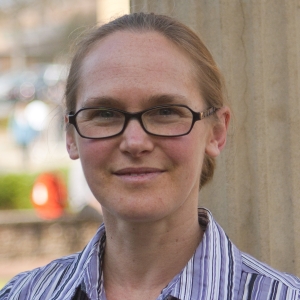 Maia Hallward, Associate Professor of Middle East Politics, Kennesaw State University
Maia Hallward, Associate Professor of Middle East Politics, Kennesaw State University
The creation of an office of religious engagement can provide the United States a number of beneficial opportunities for building cooperative partnerships and working for common aims with a broader array of civil society groups around the world. However, the United States should be humble in its aims and claims at promoting religious freedom and religious tolerance abroad. Not only does the United States itself have much to learn regarding tolerance and equality – one need only look at the experience of Muslims post 9/11, or at the powerful sentiments in the wake of the George Zimmerman trial—but the United States also conceptualizes “rights” and “freedoms” through a particular set of cultural lenses. Those crafting the scope and policies of an office of religious engagement should recall that others around the world may understand “rights” and “freedoms” differently; for example, the United States has long championed political and civil rights, but has never signed onto the International Covenant on Economic, Social and Cultural Rights. Dialogue is about building relationships, about sharing one’s truths not with the intent to “convert” others, but to engage in open and honest communication, for learning about the other sees the world, and consequently for gaining greater understanding of their interpretation of common problems, challenges, and struggles. Ideally, dialogue helps parties find common ground, reduce prejudices, and appreciate diversity, but this requires parties to enter into dialogue without demands and without assuming they have sole access to either the Divine or the Truth. The United States should also remember that the rest of the world has a much longer memory than it does. Muslims still recall the horror of the Crusades, in which Middle Eastern Christians as well as Jews and Muslims were brutally slaughtered for their different faith, and US calls for the spread of “democracy” and “freedom” in past decades were accompanied by unrivaled support for authoritarian regimes, a boycott of the democratically elected Palestinian government, and military occupations in Iraq and Afghanistan. The call for freedom and tolerance ultimately means allowing people to define and choose how they wish to frame their life and their choices; and those choices may be different than the ones we might make.
______
 Elizabeth Shakman Hurd, Associate Professor of Political Science, Northwestern University
Elizabeth Shakman Hurd, Associate Professor of Political Science, Northwestern University
The need to “take religion seriously” has become something of a mantra in discussions of religion and foreign policy. It is often taken as synonymous with support for US religious freedom promotion and religious engagement. What can it mean for the government to take religion seriously?
Taking religion seriously does not mean there will be no government engagement with religion. There is no religion today without government involvement in some form. Taking religion seriously means that the government is forced to choose among religious groups and authorities. It is impossible to take all religions equally seriously, just as it is impossible to distinguish “religious” from “non-religious” activities and groups for the purposes of public policy.
Take religious outreach. A USAID Program Guide advises that “engagement with top religious leadership is critical…organizing at the community level requires a great deal of groundwork and relationship building with senior leaders.” Religious outreach requires diplomats and practitioners to seek out leaders and spokespersons for strategic dialogue. Nontraditional religions and unorthodox versions of protected religions are usually absent. Groups that don’t count as “religions” at all because the authorities don’t recognize them as such go missing. Dissidents and doubters are nowhere to be found. USAID’s RelHarmony program has already confronted this dilemma, observing in its final report that: “religious leaders from Albania’s four traditional religious groups were, with few exceptions, supportive of interfaith initiatives, which included all traditional religions, however their views differed on the question of including members of non-traditional religious groups in RelHarmony activities.”
Yet religious engagement still operates on the pretense that all religions can be taken equally seriously. This masks the power relations involved: it will always be easier for the religion(s) of the majority, the religion of those who are in power, or the particular version of a religion supported by the state, the United States, the United Nations, corporate interests, or other power brokers to carry more weight, politically, than others. Religious engagement means that groups that the United States disfavors are more likely to be classified as “cults” or “extremists,” while US-friendly groups are registered and protected as tolerant and orthodox.
______
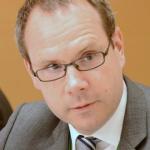 Peter Mandaville, Associate Professor of Government and Politics and Director of Ali Vural Ak Center for Global Islamic Studies, George Mason University
Peter Mandaville, Associate Professor of Government and Politics and Director of Ali Vural Ak Center for Global Islamic Studies, George Mason University
I think there is potentially great promise in setting up an office of religious engagement at the State Department – but a lot of it comes down to the question of how such an initiative is implemented. To my mind the worst outcome here would be one whereby other people at the State Department stop thinking about religion because there’s now a new office that handles that. Rather, the single greatest contribution such an office could make is to help foreign affairs officers and diplomats across all regional and functional bureaus understand that engagement with religion and religious actors needs to become a routine and standard part of the diplomatic toolkit. Right now religious engagement is confined to several very specific issues: religious freedom, countering violent extremism, and conflict resolution. We need to move beyond that framework and help policymakers understand that religion is relevant across a much wider range of issues. At the same time, we need to avoid over-emphasizing religion or religious identity, as some of the US government’s Muslim engagement efforts have done.
Many worry about whether a new emphasis on religious engagement is consistent with the US constitution. Hopefully any new office can work with the White House and State Department lawyers to develop better and more consistent legal guidelines to enable such work. I’m actually more concerned about making sure that a new focus on religion and religious actors is consistent with our broader human rights commitments. For example, our diplomats will likely encounter situations in which they want to partner with a particular religious leader to address US national security concerns even when that same figure espouses views inconsistent with our goal of advancing the rights of women globally.
Back to top
______
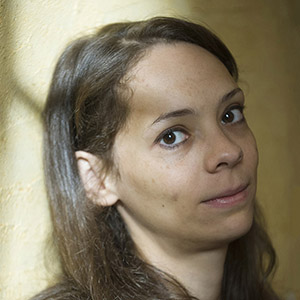 Nadia Marzouki, Research Fellow, European University Institute
Nadia Marzouki, Research Fellow, European University Institute
The State Department’s plan to create a new office of religious engagement is consistent with the recent elevation of the theme of “engagement” in foreign policy talk, from the Cairo Speech (2009) to the report of the Chicago Council on Global Affairs (2010). With this new project, US diplomacy and policy expertise proves once again its inability to grasp the political reality of the so-called “Muslim world.” Until the 1990s, secularization and modernization theory provided the main lens through which the future of this region was assessed. The continuous dismissal of religious beliefs and actors led to major errors in the anticipation, and interpretation of some of the most dramatic changes in Muslim majority countries, from the Iranian revolution to the victory of FIS in Algeria.
Today, the special focus on engagement with religious actors reproduces the same mistake in reverse. Not only is it based on an illusory effort to find a one-size-fits all-model for understanding and possibly transforming the world. But it misses what makes the changes that the post-“Arab Spring” countries are undergoing so specific. The protests, claims and sometimes tragic conflicts that have emerged in Egypt, Syria, Libya and Tunisia go beyond the secular-religious divide and it is precisely this complex reconfiguration of the secular-religious binary that Western foreign policy should address. True, religion plays a role, but as a political category, and as a politicized reference. It does not correspond to any hidden, repressed cultural reality or social fact, waiting for salvation by American diplomacy. The new insistence on religious engagement, no matter how well intended (or not), is simply beside the point. It contributes to a tendency to depoliticize the crucial processes taking place in these countries. Ironically, the politics of religious engagement reenacts the old Orientalist assumption that denies the “Muslim world” any capacity to construct an autonomous field of politics, and that refuses to acknowledge the desire of the individuals of this region to exist and be recognized as citizens, not as religiously motivated “actors” who need to be engaged by the United States.
______
 Melani McAlister, Associate Professor of American Studies, International Affairs, and Media and Public Affairs, George Washington University
Melani McAlister, Associate Professor of American Studies, International Affairs, and Media and Public Affairs, George Washington University
So here’s the question: is the State Department’s newly created office of religious engagement the long-awaited answer to the problem of a myopically secular US diplomacy? Or, instead, is it another example in a long line of ham-fisted US attempts to shape religion abroad to fit the needs of US foreign policy?
Scholars have argued both positions, and for good reason, since the seemingly impeachable argument that the United States needs to work more often with local NGOs is marred by the particular problems that come with first defining “religious actors” and then implementing policies that give power and money to some of those actors over others.
But there is another issue: when media, policymakers, and advocates enthuse about the new attention to religion, they also frequently assume that religious people in the United States should play a primary role in developing relevant US policy. The new State Department office is a dream come true in this regard, and for good reason: it emerged in part from the work of advocates who see their own religious values as a precious resource for shaping US interactions with religious groups abroad.
Let’s take the Institute for Global Engagement, one of the most important think tanks in this game. Its leader Chris Seiple has been an indefatigable advocate for more US foreign policy attention to religion. He writes for Foreign Affairs, works with the State Department on training its diplomats, and publishes an impressive journal, the Review of Faith and International Affairs. Under his leadership, IGE has also led a series of international delegations to places like Laos and China. In Pakistan, it has created a group called “Faith Friends” to promote “tolerance” and interfaith cooperation in the Peshawar region.
But, although IGE might sound like a typical (read: presumably secular) and vaguely liberal inside-the-Beltway think tank, it isn’t. The organization was founded by Chris Seiple’s father, Robert Seiple, who in 1998 became the first US Ambassador for Religious Freedom.. Before that, he headed of the evangelical international aid agency World Vision and served as president of Eastern Baptist Theological Seminary. Thomas Farr, who knows Seiple from their shared work on religious freedom at State, has described how Seiple could “draw at will from an enormous reservoir of biblical imagery, delivered in the cadences and tones of an evangelical preacher.” But Seiple could speak to secular audiences too, and from the beginning his message at IGE was that American evangelicals should play a role in cultivating a greater understanding between religions, which would in turn help support the growth of “better,” more tolerant religion abroad. Most recently, IGE has developed a program called “Women of Faith for Peace and Security,” which, among other things, cultivates collaboration between US Christian women and Muslim women in the Middle East, and supports Muslim women in developing “non-oppressive” interpretations of their faith.
The point is not that IGE is a bad organization. In the world of evangelical foreign policy activism, it is quite a good one. But as IGE has become a leading voice of advocacy for more US government involvement in religion, we need to remember that its model emerges from its specific mission, which includes both teaching evangelical Christians to think about global issues and teaching supposedly secular Washington that religious groups matter a great deal for the conduct US foreign policy. The surge of enthusiasm about State’s new agenda has too often carried with it the assumption that when the US government decides to engage religion abroad, religious Americans are best equipped to teach us how to do the work. If that is taken to be true, then religion, and inevitably specific religious groups, will be part of US foreign policy in ways that raise serious questions about Establishment.
______
 Sara Silvestri, Senior Lecturer in International Politics, City University London
Sara Silvestri, Senior Lecturer in International Politics, City University London
Religion has been part of global politics for a long time. But it is only in this so-called “post-secular” moment that scholars and policy makers have directed their attention to this in an explicit manner. The decision of the US government to set up an office of religious engagement may seem an anomaly from the standpoint of the US constitution and its understanding of the “liberal secular order,” yet, in my analysis, it is neither completely new nor extraneous to recent developments in international affairs.
I have researched the growing saliency of religion in the institutional and policy framework of the European Union over the last three decades. While it is difficult to ascertain a single factor in determining this shift, it seems that historical events have played a major role in pointing to the relevance of religion in international affairs and public policy. The growing number of Muslims in the world is probably one of the factors that triggered global attention to religious identities in the last two decades, but in this early twenty-first century the picture of faith-based mobilization has become broader. The sweeping popularity of current Pope Francis among people of all ages and ideological backgrounds, his unprecedented gestures to restructure the governance of the Catholic Church, his call for Christians to be alive and participating in society, his recuperation of some central tenets of radical liberation theology are all vivid examples that religion matters and that the link between faith and politics is not just about Islam.
Although the European Union and the United States are politically, constitutionally, and institutionally two rather different “beasts,” many parallels can be drawn in relation to how they have “rediscovered” religion and are experimenting ways to engage with faith-based ideas, actors, and organizations. The United States and the European Union are facing the same global challenges concerning the economy, migration, diversity, development, terrorism, democratic transitions, and the balance between fundamental freedoms and security. And they are both steeped in same legacy of secular, liberal, and democratic assumptions as they are trying to make sense of the meaning and power of religious ideas, actors, and networks, both formal and informal.
The European Union put in place an embryonic system for engaging with religion back in the 1990s and gradually consolidated it in the course of the 2000s in the form of anti-discrimination measures and later through Article 16C of the Lisbon Treaty. Faith-based organizations and lobbying groups are increasingly active in Brussels while the topic of religious freedom has been widely debated in the European Parliament. This new article means that the institutions have offered spaces for faith groups to participate in open consultations and the European Commission is heading annual meetings with religious leaders. These new openings indicate a fresh way to look at religious actors and to consider religious freedom; frictions and contradictions are nevertheless present, as individual member states retain control over traditional “church state” relations.
The European Union has been more concerned with the role of religion in domestic matters while the United States is more interested in the foreign policy dimension. However these two regions of the world seem to be driven by a similar spirit in appreciating the role of religion in current affairs and making space for it in their institutional frameworks. I am positive about both efforts as long as they remain objective and realistic attempts to incorporate neglected actors and issues, and as long as this effort is not driven by proselyting zeal or by secular ideological crusading aimed at disciplining and putting aside religion.
The policy dialogues that Peter Mandaville and I will coordinate thanks to a grant received from the British Council will enable us to explore different ways in which the United States, the United Kingdom, and the European Union have raised awareness of religious issues in different areas of foreign policy and to draw lessons from these different mechanisms of religious engagement.
______
 Winnifred Fallers Sullivan, Professor and Department Chair of Religious Studies, Indiana University
Winnifred Fallers Sullivan, Professor and Department Chair of Religious Studies, Indiana University
The State Department announced this past week the creation of a new office of religious engagement whose purpose, according to the Washington Post, is “to outreach to the global faith community and religious leaders.” Many Americans will react warily to this initiative, as the promoters of the effort acknowledge, although the reasons for that wariness may not be self-evident or immediately articulable.
What exactly is it about having an office in the State Department whose purpose is to engage with religious communities that strikes one immediately as being un-American? It is not that we think that American diplomats should not be informed about religion. Nor is it because we think American diplomats should not work with whomever can help them, religious or non-religious or otherwise, to achieve American goals. We all know that the “separation of church and state” is political rhetoric, not a description of the actual state of affairs—or even an accurate account of the legal mandate of the First Amendment. Religion and government are all mixed up with each other in the United States and always have been, domestically, and in foreign policy. Government “engages” with religious organization and religious leaders all the time, at home and abroad.
So…why do we need an office? The problem with the new office is not a legal one. There are no constitutional obstacles to creating such an office. The problem with the new office is political and aesthetic—perhaps, even, theological. In the United States we have a constitutional—in every sense—commitment to the idea that religion should not be formally and bureaucratically aligned with the work of government. We are allergic to established churches, ministries of religious affairs, offices of the chief rabbi, etc. We don’t do religion that way. We want these engagements to remain voluntary and informal. We want to avoid the hardening of doctrine and structures that occurs when religion is legally defined and managed—when religion and government are interlocked. We want to pretend that religion and government freely interact with each other, each preserving her own integrity, so that religion—and politics—retain their ragged anarchic capacity to interrupt, dissent, and surprise—on behalf of justice, unfettered by government offices. We call this freedom.
______
 Mara Willard, Lecturer, Harvard Divinity School in Religion, Ethics, and Politics
Mara Willard, Lecturer, Harvard Divinity School in Religion, Ethics, and Politics
Religions are both agents and objects of imperial power. Paul spread the gospel thanks to his protected status as a Roman citizen under the Pax Romana, only to be executed for apostasy. Mid-fifteenth century papal bulls approved Portuguese and Spanish military conquest of the New World, accompanied by missionary mechanisms including slavery. The British East India Company prompted the fixing of India’s internally diverse culture as a monolithic “religion” of Hinduism. Today, the United States is an oversized force affecting religious identities, norms, and practices. From lobbying by American Christian Zionists for a Jewish-majority state in Israel, to issuing the majority of Christian missionaries, to providing bully pulpit definitions of Islam or what it means to be Muslim, neither our culture nor our government realizes a “separation of church and state.”
For those concerned about ways religion and national power interact, the establishment of an office of religious engagement at the State Department provides both continuity and change. Change, perhaps, because rather than a de-facto alignment of cultural religious norms (often Protestant Christian) and formal federal powers, the office will be legally accountable to America’s enshrined respect for political pluralism: i.e., the Establishment clause. The office can thus be a site for improved scrutiny of, discussion about, and even litigation over America’s complex relationship between “church and state” at home and abroad. Change also because the office may prove a source of much needed religious literacy regarding cultures in which the United States has a diplomatic presence. In recent years, constitutional prohibition of state-sanctioned religion has too often been confused with our citizenry’s need for decent working knowledge about religions’ histories, traditions, and practices. Continuity because even these notions—that we must respect religious difference, learn about religions, tolerate “moderates” and isolate “extremists”—are claims with religious histories. Instability is the way of religion, and the way of the world.
______
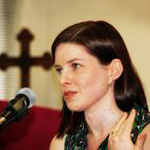 Erin K. Wilson, Director of Centre for Religion, Conflict and the Public Domain, University of Groningen
Erin K. Wilson, Director of Centre for Religion, Conflict and the Public Domain, University of Groningen
The relationship between religion and politics in the United States and the West more broadly has arguably been navigated through a series of deeply embedded assumptions about the nature of religion. Consciously or not, assumptions underpinning approaches to religion frequently rest on the view that religion is best understood as primarily institutional, individual, and irrational. Understanding religion in this way justified its exclusion from politics and foreign policy, contributing to religion’s neglect for many years. This definition also placed religion in a similar category as other “irrational,” habitually excluded dimensions and actors in society – tradition, emotion, the body and women, subordinated to modernity, rationality, the mind, and men. Further, and related to these embedded assumptions, religion was considered important in non-Western, pre-modern societies, but not in the Enlightened, secular West.
While the establishment of an office of religious engagement may in some ways address the years of neglect of religion that these deeply embedded assumptions have previously engendered, there is a danger that it will instead entrench these stark divisions. An office for religious engagement abroad to some extent reinforces the notion that religion is an issue “out there,” for “them,” not for “us.” While we (that is, the United States and more broadly speaking the West) may have to consider how religion influences non-Western societies that stubbornly refuse to secularize, the implication is that there is not the same need for us to think about how religion may have shaped and continues to shape our own values, perceptions, and policy goals, including foreign policy goals that our secular identity may not be as secular or as fixed as we at times like to think it is. As such, it runs the risk of further sidelining an important dimension of self-reflexivity that is critical when dealing with sensitive issues such as religion.
______












This is a vital discussion in these days, and it needs non-North American and non-European voices.
Those would like to know some of the “back story” might be interested in the work of the “Religion & Foreign Policy Working Group,” a contributing member of the U.S. Secretary of State’s “Strategic Dialogue with Civil Society” (whose mandate was recently extended to May of 2015). The working group met throughout last year, concluding its efforts with a “White Paper” (PDF) that made several suggestions (among which was the creation of this new office).
Critically, the “White Paper” was produced without dissent among the 100 scholars, faith leaders, and government officials who participated. The new office warrants careful and continuous conversation.
As a participant in the working group, however, I would summarize our efforts this way: If, 84% of the world believes in something greater than themselves, and 75% of the world is restricted in their freedom of conscience or belief (resulting in less economic development, less women’s empowerment, and more political instability)—and if you believe in engaging the world as it is—then there needs to be a more focused attempt to at least engage religion, if not partner with faith communities, where appropriate, in America’s global engagement (some of which is done through our government).
Put another way…a politically and theologically diverse group of folks found common cause in their suggestions because they agreed on two basic facts: (1) religion, at the least, should be included as an analytic factor in the realpolitik of governments; and (2) faith communities worldwide can and want to contribute positively to the local and global challenges that face our communities and countries, sometimes in partnership with government(s).
May the conversation deepen and expand, here and abroad, and may we do so with mutual respect.
As it turns out, I was one of the then-State Department officials involved in creating the Secretary of State’s Advisory Committee on Religious Freedom back in the 1990s. Our goals at the time were several: To cultvate resource people, both from religious communities and from academia, to help us think through issues; to deepen and develop working relationships with religious NGOs, especially those involved in conflict resolution and reconciliation projects; to give religious groups who felt their concerns were being ignored an address at the State Department. I also hoped to try and sensitize policy elites to the nuances and complexities of religious actors and issues on the latter’s own terms. It might be an interesting project for someone to revisit that earlier effort, compare it to the present one and see what has changed and what hasn’t.